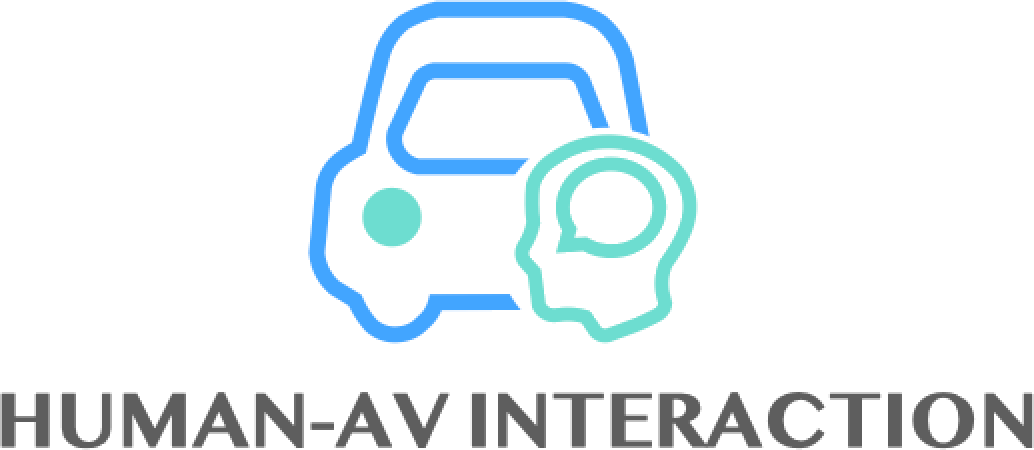Are You Happy with AV?
The prospect of wide-scale development of automated vehicles (AVs) is due to advances in, e.g., robotics, computational power, communications, sensor technologies, and the recognition performance by using artificial intelligence technology. AV brings novel interactions to human users as drivers, passengers, and other human traffic partners undoubtedly. Human-machine interface (HMI) and recommendations of AV kinematics behavior have been widely studied to build appropriate interaction and communication between AV and human users to calibrate trust and improve actual and perceived safety, efficiency, comfort, prosociality, etc. User experience (UX) correlates trust and has mutual influence with multiple factors, including motion sickness, comfort, and other subjective feelings. However, it is still unclear how to achieve a better-integrated user experience in AV-human interactions. How UX and other human factors influence each other is widely unknown. This workshop aims to bring together multidisciplinary researchers from academia and industry to discuss the impact factors and potential approaches to improve user experience inside and outside automated vehicles. It is an open platform that includes interdisciplinary researchers from engineering, cognitive psychology, computer science, informatics, sociology, and design to integrate the ideas and obtain inspirations.
Topics
- What factors from cognition perspective influence ‘user experience’ in AV-human interaction?
- What is needed to create a positive user experience of automated driving?
- What is the relationship between UX and other human factors?
- How is mutual influence among comfort, trust, actual & perceived safety, workload, situation awareness, enjoyment, efficiency, satisfaction and prosociality?
- Human-AV interaction theories, concepts, and models
- UX design and evaluations
- Human factors
- Human-AV interaction
- User experience and usability
- Human-machine interface for AV
- Kinematics of AV for human
- Trust in AV
- Interaction modeling
Call for Workshop Poster
We will use Email trust.calibration.ws@gmail.com for the Extended Abstract of workshop poster submissions.
Previously published work is allowed to be presented again as a poster at this workshop.
To submit an extended abstract, you must have the following items readily available:
- Title of the manuscript
- Keywords: You will be prompted for 1-3 keywords
- Extended abstract in 1 or 2 pages. and must follow the IROS double column format. Information and templates are available here
- For previously published work, please clearly indicate the publication information.
- The extended abstract file should be a PDF file (version 1.4 or higher), have all fonts embedded/subsetted, in US Letter page size, searchable, and a non-password protected document.
Peer-reviewed and Publication
- The extended abstract of the workshop poster will be peer-reviewed.
- Submittion open: 2025/06/06
- Submittion DDL:
2025/08/152025/09/25 (second round) - Notification:
2025/09/012025/09/30 (second round) - The accepted workshop poster and its extended abstract will be published on the workshop website, but they will NOT be included in the IROS 2025 proceedings or published on IEEE Xplore.
Committee

Hailong Liu
Associate Professor,
Nara Institute of Science and Technology, Japan
liu.hailong@is.naist.jp
Machine Learning,
Human-Machine Interaction,
Trust Calibration, Motion Sickness,
Modeling

Hao Cheng
Assistant Professor,
University of Twente, The Netherlands
h.cheng-2@utwente.nl
Deep Learning,
Road User Behavior Prediction,
Scene Understanding

Wenhao Luo
Assistant Professor,
University of Illinois, Chicago (UIC), USA
wenhao@uic.edu
Robotics,
Machine Learning,
Control Theory

Wenlong Zhang
Associate Professor,
Arizona State University, USA
Wenlong.Zhang@asu.edu
Robotics,
Cyber-Physical Systems,
Control Theory

Fang You
Professor,
University of Tongji, China
youfang@tongji.edu.cn
Intelligent Cognitive Interaction Automation,
Intelligent Cockpit Design,
Mixed Space Information Design and Embodied Design

Jianmin Wang
Professor,
University of Tongji, China
wangjianmin@tongji.edu.cn
Human-Computer Interaction

Junmin Wang
Professor,
University of Texas at Austin, USA
jwang@austin.utexas.edu
Human-centric Vehicle Automation,
Human-Machine Collaboration
